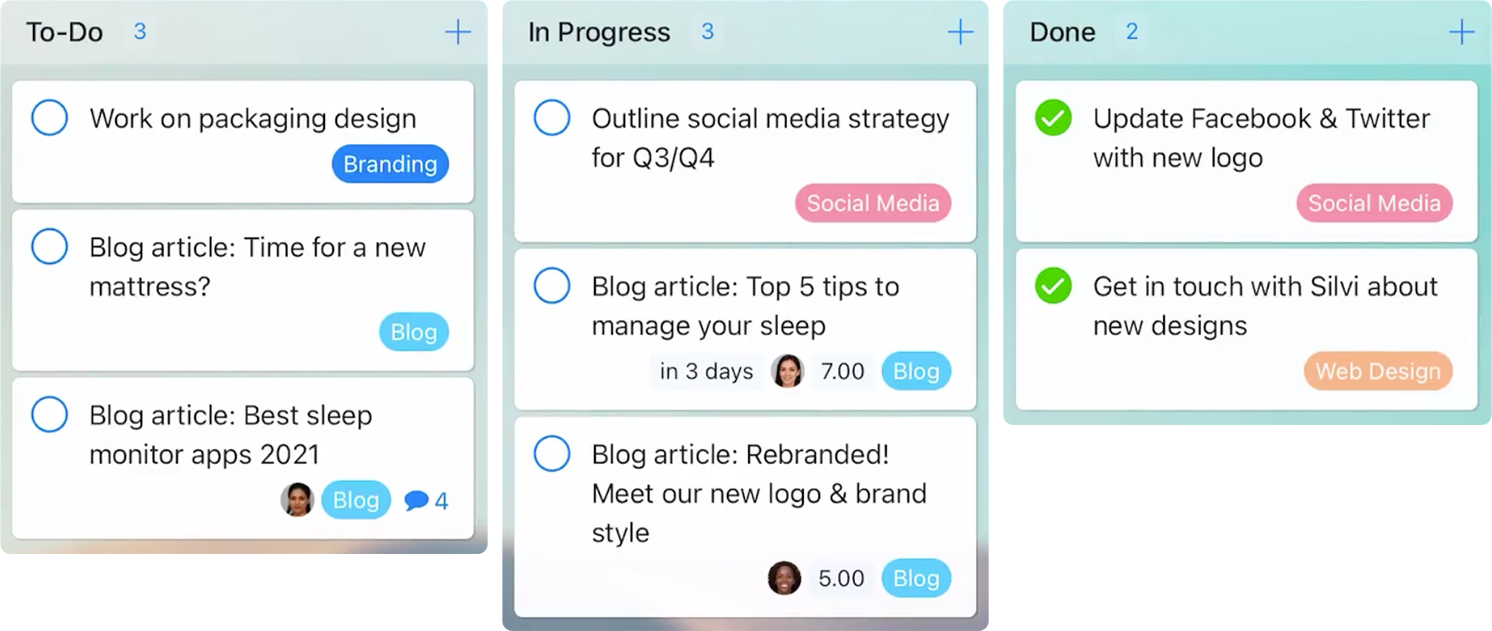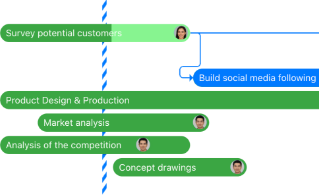2020 Vision: What Productivity Experts Are Predicting for the New Year
Wrapping up 2019 with these 10 insights

Productivity is the idea of doing more in less time. It’s about working efficiently but also effectively, and there are plenty of claims of how you can best achieve this.
After a year of reading our productivity insights, we thought ‘what better way to wrap up 2019 than to hear what others had to say on the topic’. So, without further ado, here are 10 predictions we should look out for in 2020.

Productivity predictions for 2020
1. AI becoming an office staple
“I believe 2020 may be the year when AI finally becomes a staple in increasing productivity in the workplace. AI is already capable of speech recognition, machine learning, as well as data processing. I think there will likely be a step up in AI virtual assistants that cover a large multitude of tasks. Even more administrative tasks will be eliminated, recruiting and onboarding will become easier, and processing and storing data will become faster.
As a result, we’ll be able to focus our own attention solely on immediate, crucial tasks – without worrying about mundane, repetitive side-tasks of any kind.” – Marija Kojic, Productivity Researcher & Writer, Clockify
2. Extended use of self-service tools
“Today’s customer prefers to use self-service tools wherever possible, rather than having to get in touch with a business. This means that creating intuitive and accessible self-service tools can not only help improve customer satisfaction, but it has the potential to improve the productivity of your customer service team by reducing the number of inbound inquiries a business receives.
In 2020, I believe we’ll start to see extended use of self-service tools and articles – that is, the knowledge base behind these platforms – to help democratize information across the business and support the productivity of each agent.” – Ulrich Hoffmann, Director EMEA Central, Zendesk
3. A resurgence in analogue
“I see a resurgence in analogue and a reduction in the use of technology. Productivity isn’t about doing more in less time, but about knowing and doing the right things. Smartphones are incredible. They do things you could never imagine in the past. But more apps don’t mean you’ll become productive.
With a reduction in smartphone and technology use, people will start returning to analogue. By analogue, I mean paper. Journaling, index cards, etc. are back. I’ve never used any to-do apps myself, and my daily to-dos are written on a folded piece of paper.” – Si Quan Ong, Marketing Manager, Ahrefs

4. Single-tasking
“I think—or at least hope—that 2020 will be the year that it becomes normal to tell a colleague that you’re going offline for a while so that you can do some clearer thinking about an important piece of work. Research has long shown that we are smarter, faster and calmer when we are not continuously scattering our attention, and it’s been nearly 10 years since I first wrote about the productivity hit that comes from always-on multitasking at work.
I’m delighted to see more and more professionals now being thoughtful about ways to do more focused “single-tasking”, and being bolder about agreeing on team norms to enable people to look away from their devices occasionally. It feels as if we might finally be at a tipping point where this goes mainstream. Fingers crossed.” – Caroline Webb, Author of How to Have a Good Day
5. Having an organized digital life
“I think app usage—along with a greater focus on business automation—will continue to rise as CEOs and their teams search for ways to boost productivity and more effectively manage their time. Having said that, make sure you have your digital life in order. Delete any apps that you haven’t used in the last three to four months because if you haven’t used them yet, you probably never will.” – Deb Lee, CPO®️, Digital Productivity Coach, DAllisonLee.com

Organize your daily life with ease.
Get started with our easy-to-use project management software for free today!
6. Remote work making more of a notable impact
“Remote work is a trend that isn’t going away anytime soon. With more and more people expressing the desire to work remotely and research being done to prove its efficiency, I expect the impact of remote work to expand further than in the tech industry where we tend to see it the most.

In the year ahead, companies who offer remote work as an option must embed inclusive practices, like video conferencing and remote advocates, to foster a sense of belonging and set their teams up for success.” – Anastasia Nelson, Senior Product Manager, Sprout Social
7. But also cementing traditional benefits to keep staff motivated
“Some of the best ways to retain employees and boost productivity is by offering traditional benefits, such as vacation days, pension plans, and insurance. This is in stark contrast to the employee motivation trends we have seen over the past decade, which have tended to focus on perks like office lunches, games, pets, and flexible hours.
These perks are attractive to job-seekers, but they aren’t long-lasting. There’s no longevity in lunches and gaming consoles. As a result, employees feel replaceable and demotivated. Traditional benefits not only promise employee retention but give people the impetus to work better and longer for a company.” – Ronita Mohan, Content Marketer, Venngage
8. Morning routines
“While the idea of having a three-hour-long morning routine in which you work out, meditate, work on your side-project, read, and do just about anything else you want to do in the morning may seem like an ideal way to spend the morning (for some!) for others the trick is in having a morning routine at all.
Being able to carve out five, ten, or fifteen minutes in the morning just for you is a huge accomplishment for many, and it is the platform from which a more engaged morning routine—which some may say is the best productivity ‘hack’ there is—will come from.” – Benjamin Spall, Writer & Co-Author of My Morning Routine, Benjamingspall.com
9. Being conscious of our access to info
“Thanks to the cloud, access to information has never been more convenient. We can access information from just about anywhere at any time. But this kind of privilege can be a double-edged sword. If we’re not careful, it can get distracting and divert our attention away from the tasks at hand.
As more and more people are becoming more aware of this, I think we’ll see, in 2020, people being more conscious of their information accessibility. They’ll learn which kind of information has value and which should be disregarded.” – Martin Welker, CEO, Zenkit
10. Not anticipating any changes at all
“Nothing is indicating that 2020 will be any different for the way we work and live compared to this year. Every year, we have to deal with more distractions, not less. Hence, the ability to focus becomes even more important.” – Darius Foroux, Author & Blogger, Dariusforoux.com

Do you agree with any of the 10 predictions? What kind of productivity trends do you expect to see in 2020?
Cheers,
Dinnie and the Zenkit Team
FREE 20 MIN. CONSULTATION WITH A PROJECT MANAGEMENT EXPERT
Wanna see how to simplify your workflow with Zenkit in less than a day?
Book a Live Demo